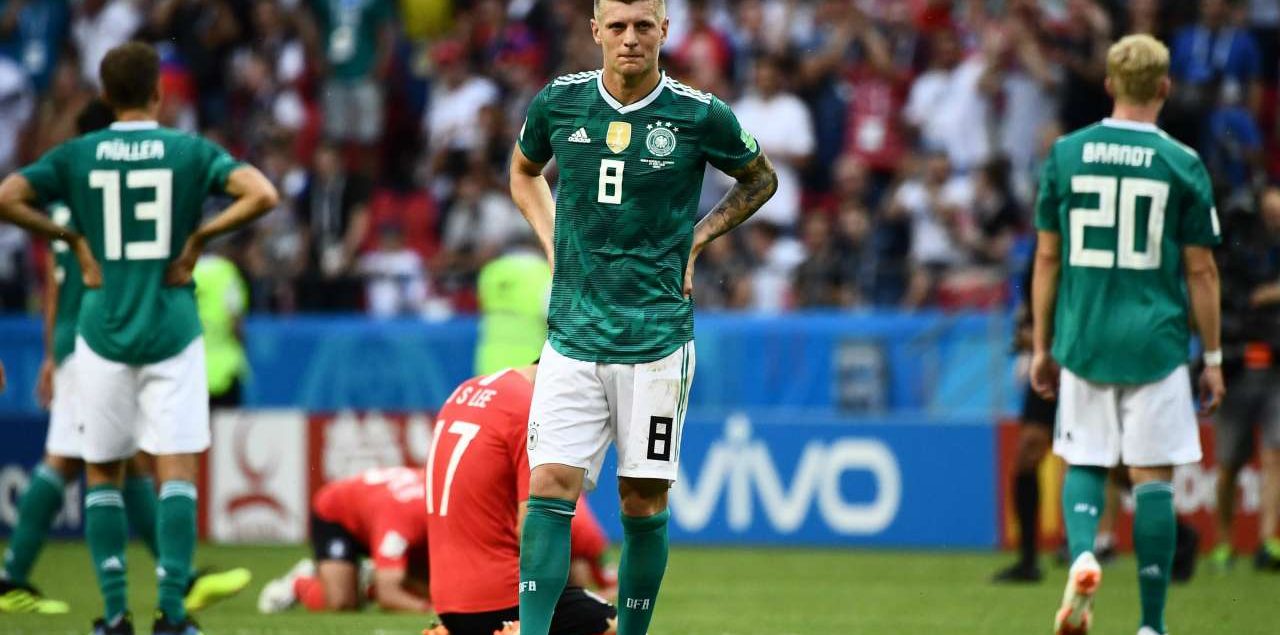Russia’s Cellar Dwellers: #3-Germany
Bland, lacklustre and overall completely devoid of any real ideas in the final third, Germany suffered a similar fate like the past two world champions and exited in the group stages just four years after winning it all. Last time the Germans performed this bad in Russia, they crumbled in Stalingrad.
Joachim Löw started off the tournament with the surprise exclusion of Premier League starboy Leroy Sané and frankly, it all went downhill from there. Among Löw’s 23-man squad were ageing and arguably complacent veterans like Sami Khedira and Thomas Müller among others. In their opening day defeat against Mexico, it was clear for everyone to see: Many of their current squad were living off their past glories and were largely in Russia on holiday. Moreover, Germany lacked game-changers capable of beating their men one-on-one.
While Mesut Özil was dreaming of Miss Turkey Amine Gulse and letting games bypass him, Germany newboy Timo Werner – a striker who many tipped for this year’s golden boot – struggled to lead the line against deep blocks. With the likes of Sweden, Mexico and South Korea waiting to hit Die Mannschaft on the break, Werner’s pace was as useful as Pogba in a double pivot. As a result, Germany rarely threatened the opposition despite having the lionshare of possession and typically relied on individual brilliance to see them through. See: Toni Kroos v Sweden. Despite their last-minute win, the Germans were unable to build any momentum and eventually fell at the hands of an inspired South Korea.
Now with Germany officially out of the World Cup it’s time for them to ask serious questions about themselves, their program and their roster moving forward. Das Reboot 2.0? Call Raphael Honigstein, it’s time for a sequel.
By: Gregory Caltabanis
Photo: AFP
